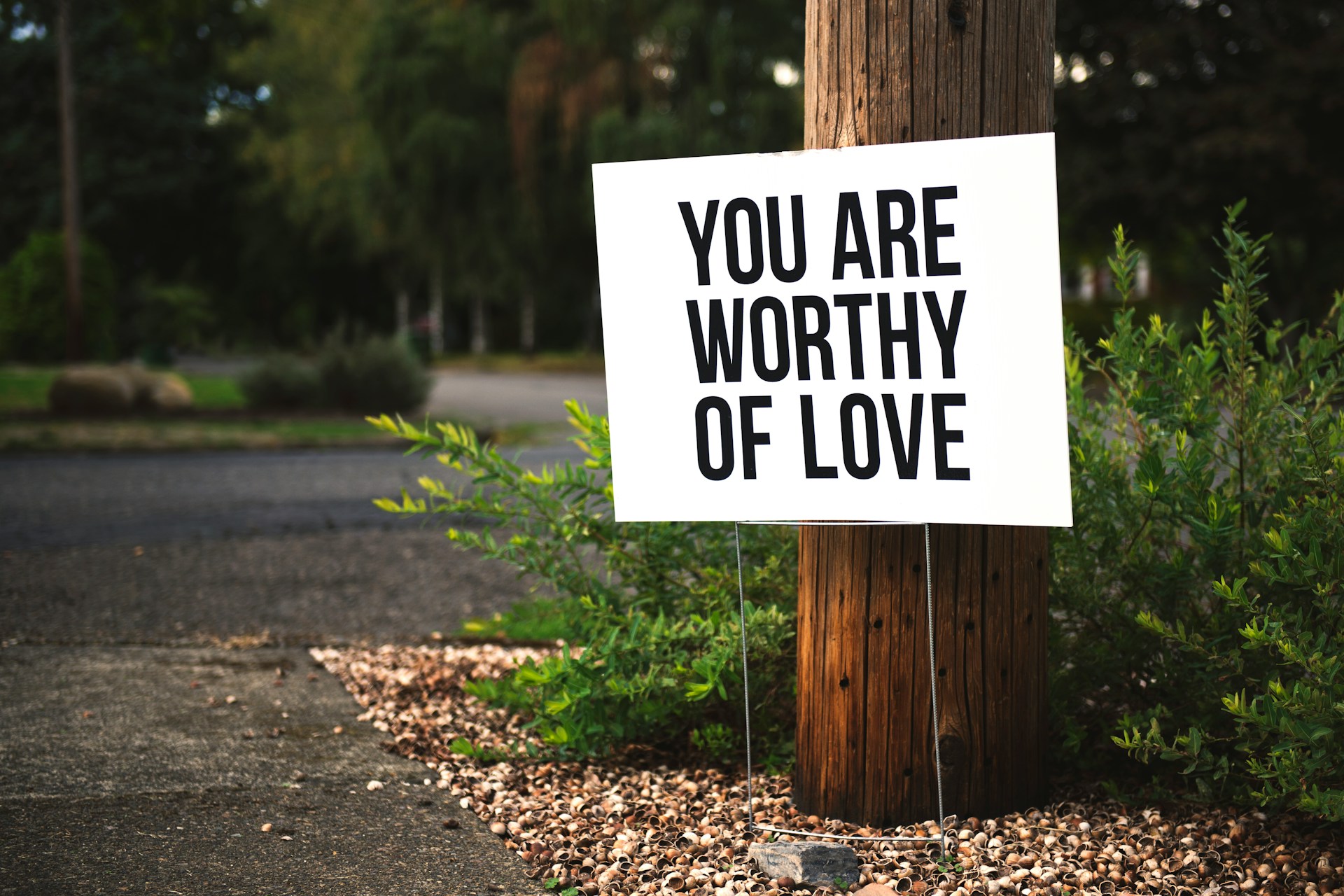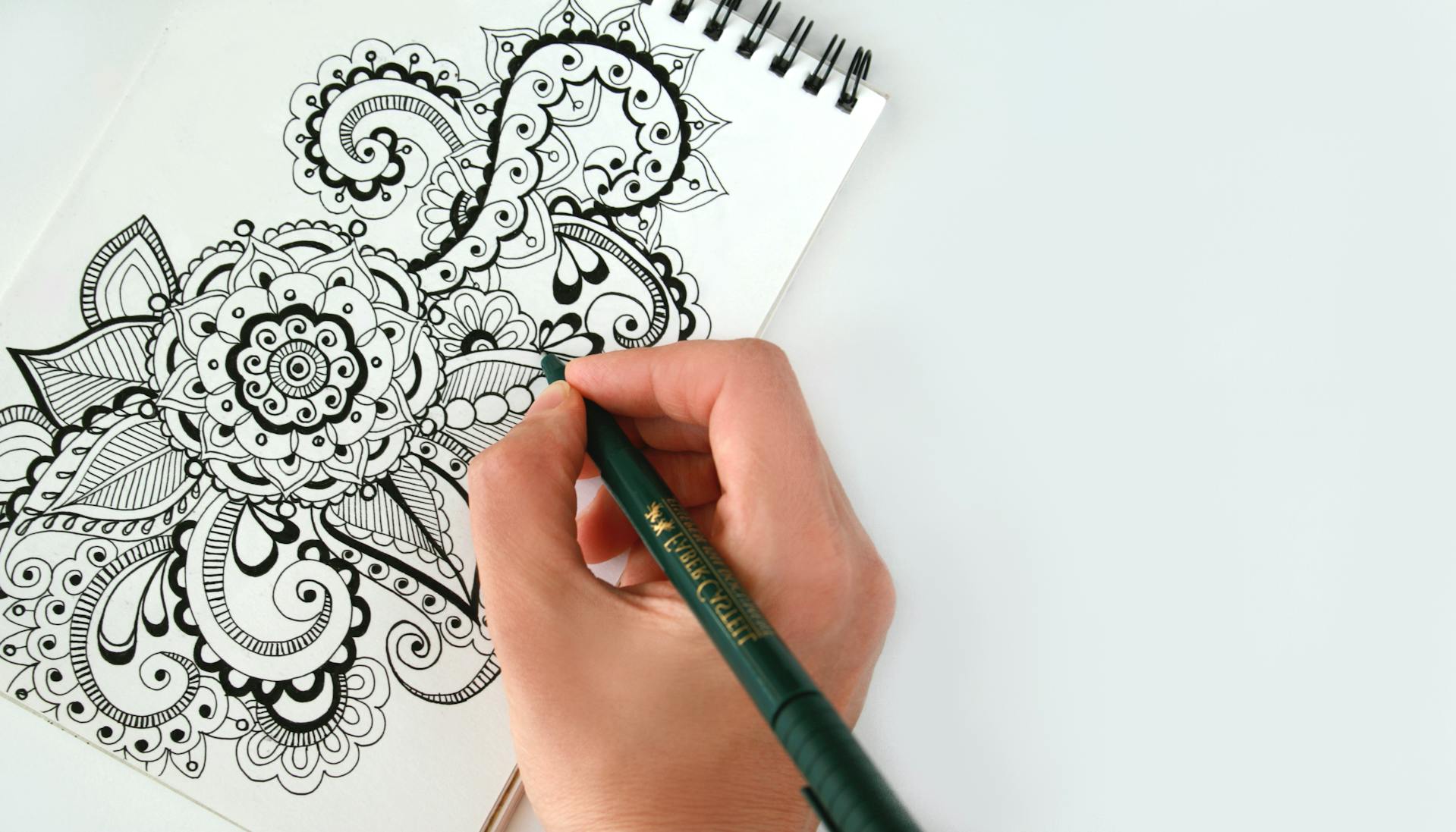Being Confident Can Be A Struggle
With so many eyes on you in your personal life, professional life, and digital life, it's hard not to feel anxious or shy sometimes. You're not alone on this. If there's one fear that many people share, it's being judged by others. We all care deeply about what others think of us, so much so that it affects what we do and how we think. But we're here to tell you, the only way we can grow in this world is if we believe in ourselves and our abilities. It's important that you're your own biggest cheerleader! So to give you a helping hand, here are 10 signs to watch out for to see if you have self-esteem issues, and if you do, here are 10 helpful ways to improve it.
1. You Talk Down To Yourself
Struggling with self-esteem issues usually comes in the form of talking down to yourself. It's never about the positives, it's always about the negatives. It feels as if no matter what you do, no accomplishment or award will ever make you feel like you deserve praise.
 Photo by Anthony Tran on Unsplash
Photo by Anthony Tran on Unsplash
2. You Have a Fear of Failure
If there's one thing every person with low self-esteem issue fears, it's failure. They're constantly worried about making mistakes, failing to meet expectations, or simply not being good enough.
By getting too far into their heads, it holds them back from trying new things or taking on new challenges. But without this leap of faith, it's impossible to get anywhere.
 Photo by Yuris Alhumaydy on Unsplash
Photo by Yuris Alhumaydy on Unsplash
3. You Love To People-Please
Because your own opinion doesn't matter to you, you're always looking for validation elsewhere. People with low confidence love getting acceptance from friends, family, coworkers, you name it. For them, there's nothing more important than meeting the expectations that others have.
 Photo by Ashwini Chaudhary(Monty) on Unsplash
Photo by Ashwini Chaudhary(Monty) on Unsplash
4. Perfectionism All Day Every Day
It may seem like the opposite, but being a perfectionist is a sign you might have low self-esteem. You're always setting unrealistic goals that you can't achieve and you're only content if you reach perfection. But sadly, because perfection is impossible, nothing you do feels like it can ever measure up.
5. You Suck at Accepting Compliments
Does receiving compliments make you feel uncomfortable? If it's not because you're humble, is it because you feel like you don't deserve it? If we nailed the head on the coffin, you'd be surprised to know many people who suffer from low self-esteem hate positive attention or praise. It's simply because they don't accept their own accomplishments as "worthy".
 Photo by Ben White on Unsplash
Photo by Ben White on Unsplash
6. You Compare Yourself to Others
Instead of celebrating your own wins, you're always looking to compare yourself to others to see where you're lacking. Doing this is a clear sign you struggle with self-esteem.
It means you don't see yourself in a positive light and that you think others are better than you.
7. You're Overly Critical of Yourself
Your achievements are never good enough, yet your mistakes are always 10x worse than they actually are. How does that make sense? For people struggling with their self-esteem, they're often way too critical of themselves. This only makes it that much harder to grow and change; you'll never get anywhere if you're always hung over on the little details.
8. You're Scared Of Being Judged
Stepping out of your comfort zone can be a challenge for anyone, but for timid and anxious people, it can seem impossible. What if doing something different garners criticism and judgment from your peers? That's a lingering thought that always plays in the minds of people with low self-esteem.
9. You Lack of Assertiveness
If you struggle to get your point across when you speak or have a hard time expressing your wants and needs, there's a good chance you're just not a confident person. You often let other people's opinions shape your own, or you refuse to speak out because you're scared of rejection. Whatever haunts you, it's holding you back from being heard!
10. You Self Isolate
In more extreme cases, having low self-esteem can make you withdraw from society. Your biggest fear is being judged by others, so if you remove the "others" part of the equation, it'll be okay right? Wrong.
Self isolating just leads you to an endless spiral of loneliness and low self-worth. It's a dangerous hole to dig yourself into.
1. Practice Self-Compassion
If you want to feel more confident, step one is learning how to be kinder to yourself. Self-criticism gets you nowhere; you have to be understanding of your mistakes and accepting of your flaws. No one's perfect and you definitely don't need to force yourself to be.
 Photo by Sonny Mauricio on Unsplash
Photo by Sonny Mauricio on Unsplash
2. Set Achievable Goals
The best way to keep yourself on track is to set achievable goals and milestones. It's an easy way to note down your progress and celebrate the little wins. As you continue to move forward, you should be noticing your confidence getting stronger and stronger with each passing goal.
 Photo by Estée Janssens on Unsplash
Photo by Estée Janssens on Unsplash
3. Focus on Strengths
It may be hard at first, but stop thinking about all those negatives. Instead of trying to wish away your flaws, focus on your strengths instead. You're an amazing person and you should acknowledge that. Look past the bad things and learn to appreciate your talents and abilities.
 Photo by Caroline Veronez on Unsplash
Photo by Caroline Veronez on Unsplash
4. Surround Yourself with Positive Influences
Never underestimate the power of being around good company. Having supportive friends and family that can help you on this journey is a great way to stay motivated. These positive influences will steer you in the right direction and point out all the reasons why you should love yourself.
 Photo by Omar Lopez on Unsplash
Photo by Omar Lopez on Unsplash
5. Practice Positive Self-Talk
This might sound cringy, but it's a good practice to adopt especially if you want to improve your self-esteem. Every day, try taking a minute or two to compliment yourself and fill your mind with positive affirmations. It's all about shifting your perspective - away with the negatives and in with the positives.
 Photo by Tim Mossholder on Unsplash
Photo by Tim Mossholder on Unsplash
6. Engage in Physical Activity
It's not just about mental attitude, it's about physical behavior too. Regularly engaging in physical activity is a surprising way to give your confidence a little boost. Getting that endorphin kick can really help improve your mood and get those positive feelings rolling.
7. Take Care of Your Appearance
One easy way to feel good is to look good. Practicing selfcare and learning to be comfortable in your body can really improve your self-esteem. Whether it's getting a good skincare routine, putting on a bit of makeup, or dressing up in some nice clothes, you'll definitely have a better self-image if you feel good in your skin.
8. Learn New Skills
If your biggest concern is that you feel like you're lacking in some areas, why not instill some confidence by leaning new skills that showcase your capabilities. Step outside of your little bubble and push yourself to try new and challenging activities. It's the best way to slowly build confidence.
9. Practice Mindfulness and Gratitude
The moment your head starts getting clouded by negativity again, do your best to practice mindfulness and remember all the things you're grateful about. See yourself in a positive manner instead of being so hard on yourself. Developing this positive mindset is one way you can learn to be more forgiving.
10. Volunteer and Help Others
If you need that extra little push to feel good about yourself, consider helping other people. Volunteer in your community and do some good for others. Making a change in the world can give you that sense of fulfillment you're looking for. After all, there's nothing more considerate than taking time out of your day to help someone else.


















